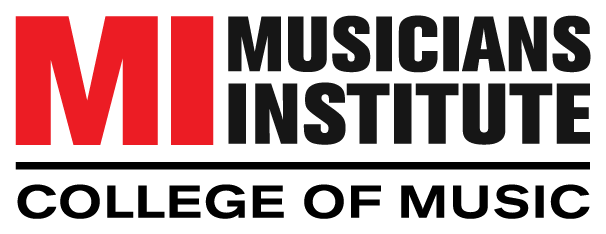Maximize your chances of musical success
Of course, getting a music degree will not guarantee a job in these highly competitive industries. The qualification you receive at the end of your course is only one of the benefits of a music degree or certificate.
A musical qualification is a launchpad for your career trajectory. The ideas we present below will help you choose a course and then maximize that qualification’s value.
A plan is a roadmap with milestones on your journey
You need to have clear career goals first, and then you can make a solid plan for achieving your goals. A plan does not guarantee success, but it is much better than randomly choosing a music institution or course. With a plan in place, you can look at your options and decide which options best suit your career goals.
You can use your plan as a roadmap to success, ensuring you complete the short and long-term milestones in your plan and keep yourself on track.

Blog Post
"*" indicates required fields
By submitting this form, I authorize Musicians Institute (MI) to make or allow the placement of calls, emails, and texts to me at the phone number that I have provided, including through the use of automated technology, or a prerecorded or artificial voice. I understand that I am not required to provide my phone number as a condition of purchasing any property, goods, or services. I agree to the terms of MI’s Privacy Policy. MI will not sell or rent your information to third parties, and you may unsubscribe at any time.
Be prepared to adjust and tweak your plan as you work through the steps below. There is no reason to believe that your plan should be set in stone when you finish writing it down – a plan is shaped as you learn more.
The three primary careers that follow from a music degree
The three main careers that follow from completing a music degree are:
- Music education
- Performer
- Screen scoring
Decide which of the three musical career paths interests you the most.
You’ll also need to make an honest appraisal of your current skill level. You need to match your existing skills with the prerequisite skills of the institutions you are considering. Generally speaking, institutions with higher levels of skills as essential prerequisites have a higher level of competition for the places in the course.
If you want to teach music, you will also need to research individual states’ educational standards and requirements.
Many professional musical careers are highly competitive
You should also estimate the level of competition in your preferred career. It is essential to be realistic about your chances.
Estimating the level of competition is not about “quitting early” or “believing in yourself.” It is a hard-nosed appraisal of the amount of hard work you will need to do, so you can develop the skills and experience necessary to give yourself a fighting chance in a highly competitive career space.
What’s the financial picture?
This is another one of the “you need to be realistic” questions. In many musical careers, only the top performers are exceptionally well paid. So you need to map out the range of income, from highest to lowest, you would expect to earn in your preferred career.
Then you need to get a clear picture of the current market opportunities. Are there hundreds of job advertisements for your perfect job, just a few, or almost none?
How do people find jobs in your preferred line of work? Through online advertisements, or through work experience or networks they developed while completing their musical degree?
Finally, you’ll need to work out your expenses (including any student loans) and your capacity to repay any debts after finishing your degree and have found a job in your chosen profession.
Some institutions specialize in producing students for certain careers
The National Association of Schools of Music lists over 600 accredited institutions that teach music courses, including MI.
As a student, you literally have hundreds of options for musical courses and qualifications.
Some institutions will be well known for particular careers. For example, many institutions in LA will specialize in film and television scoring courses. As we see below, completing a course and earning a qualification is only one of the benefits of a music degree.
At this point, you are narrowing down the list of options. You have a career in mind, and you have a list of institutions well known for producing high-quality students for your chosen career.
Core subjects and electives
Look carefully at the courses offered by your favored institutions. Map out what core, minor and elective subjects are on offer. Decide which of these subjects interests you, what skills and experiences you can bring to the subject, and what additional skills you’ll need to develop to excel in the subject.
Auditions
Many institutions will have very specific requirements for auditions. For example, if applying for a place in a conservatorium, you might be asked to play an etude, a concerto movement, and a couple of passages from well-known symphonies. You’ll need to list these audition requirements in your planning document and make sure you have the skills to perform exceptionally well at the auditions.
By this stage, you have an outline plan of the career you are pursuing and the institutions and courses that might suit your needs.
The networks you develop while completing your degree
There are two main networks that you will develop while you complete your course: peers and faculty.
Growing your peer network will typically have to wait until you arrive on campus, although you could certainly make connections through online music education.
You can start developing your potential faculty networks as soon as you have narrowed down your institutions and course options. Let’s say you have five exciting institutions and course options.
Research and develop faculty networks
Look up the names and qualifications of the people teaching your favored options. Find out what subjects they specialize in and what topics of research interest them. You can reach out to these faculty members before you make a final decision about accepting an offer.
Tell them about yourself and your career goals. Ask them a question that demonstrates your willingness to learn more about the course and that illustrates that you also have an interest in their subjects.
Alumni networks
Many institutions have alumni associations. You can also reach out to people in these networks and ask them more general questions about their experiences with the course. You are trying to get a “feel” for what the course is like and how it fits your career plan.
Final Thoughts
We hope you have found these suggestions helpful and that you now have a very comprehensive plan for choosing a music degree.
Good luck!

